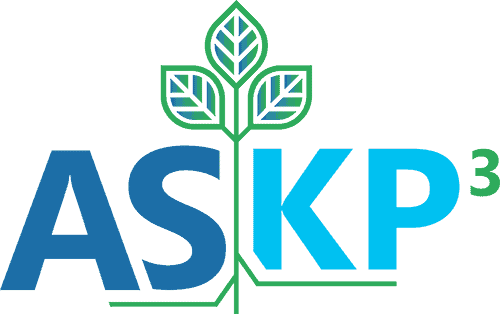Post-Traumatic Stress Disorder (PTSD) is a debilitating mental health condition that can have a profound impact on a person’s life. Fortunately, there are various treatment options available to help individuals manage and overcome PTSD. In this article, we will explore what PTSD treatment entails, why seeking treatment is crucial, the different types of treatments available, and the role of support systems in the recovery process.
Understanding PTSD: A Brief Overview
Before delving into the intricacies of PTSD treatment, it is important to have a basic understanding of what PTSD is. PTSD, or Post-Traumatic Stress Disorder, is a mental health disorder that can develop after experiencing or witnessing a traumatic event. It is characterized by a range of symptoms that can significantly impair an individual’s daily functioning and overall well-being.
Defining PTSD
PTSD is a complex disorder that manifests differently in each person. It is crucial to understand that PTSD is not a sign of weakness, but rather a natural reaction to traumatic experiences. The Diagnostic and Statistical Manual of Mental Disorders (DSM-5) outlines the diagnostic criteria for PTSD, which include exposure to a traumatic event, intrusive thoughts or memories, avoidance behaviors, negative changes in mood and cognition, and increased arousal or reactivity.
When someone experiences a traumatic event, their brain undergoes significant changes. The amygdala, which is responsible for processing emotions, becomes hyperactive, leading to an exaggerated fear response. The prefrontal cortex, which is responsible for decision-making and emotional regulation, may also be affected, resulting in difficulties in managing emotions and memories related to the traumatic event.
It is important to note that not everyone who experiences a traumatic event will develop PTSD. Factors such as the severity and duration of the trauma, individual resilience, and available support systems can influence whether someone develops the disorder.
Common Symptoms and Triggers
PTSD symptoms can vary in intensity and duration, but they generally fall into four categories: intrusive thoughts and memories, avoidance behaviors, negative changes in mood and cognition, and increased arousal or reactivity. Individuals with PTSD may experience flashbacks, nightmares, social withdrawal, difficulty concentrating, irritability, and hypervigilance. Triggers, such as specific sounds, smells, or situations, can often intensify these symptoms.
Flashbacks are one of the most distressing symptoms of PTSD. They involve vivid and intrusive memories of the traumatic event, which can make the individual feel as if they are reliving the experience. These flashbacks can be triggered by various stimuli, such as a particular smell, a specific location, or even a certain time of year that reminds the person of the traumatic event.
Avoidance behaviors are another common symptom of PTSD. Individuals may go to great lengths to avoid people, places, or activities that remind them of the traumatic event. This can lead to social isolation and a significant impact on their quality of life. It is important to understand that avoidance behaviors are not a sign of weakness or cowardice, but rather a coping mechanism to protect oneself from the distressing memories and emotions associated with the trauma.
Negative changes in mood and cognition are also prevalent in individuals with PTSD. They may experience persistent negative thoughts, feelings of guilt or shame, and a distorted sense of self-worth. These changes can significantly impact their ability to trust others and maintain healthy relationships. Additionally, individuals with PTSD may struggle with memory problems, difficulty concentrating, and a diminished interest in activities they once enjoyed.
Increased arousal or reactivity is another hallmark symptom of PTSD. Individuals may experience heightened anxiety, irritability, and an exaggerated startle response. They may constantly be on edge, anticipating danger, and find it challenging to relax or sleep. This hyperarousal can be exhausting and further contribute to the overall distress experienced by individuals with PTSD.
It is important to recognize that PTSD is a complex disorder that affects individuals in different ways. Each person’s experience with PTSD is unique, and treatment approaches should be tailored to their specific needs and circumstances.
The Importance of Seeking Treatment for PTSD
Seeking treatment for PTSD is crucial for various reasons. On one hand, untreated PTSD can significantly impact an individual’s mental health, leading to an increased risk of developing other mental health conditions such as depression or anxiety disorders. On the other hand, untreated PTSD can also have a detrimental effect on personal relationships, leading to strain and potential isolation.
The Impact of PTSD on Mental Health
Living with untreated PTSD can take a toll on one’s mental health. The constant state of hypervigilance and distress can lead to chronic anxiety, depression, and feelings of hopelessness. These symptoms can be overwhelming and make it challenging to engage in daily activities or maintain a sense of normalcy. Seeking treatment for PTSD is essential to alleviate these symptoms and improve mental well-being.
When left untreated, PTSD can disrupt sleep patterns, making it difficult to get a good night’s rest. Sleep disturbances can further exacerbate the symptoms of PTSD and contribute to a vicious cycle of fatigue and emotional distress. Seeking treatment can help individuals establish healthy sleep routines and address any underlying sleep disorders that may be exacerbating their PTSD symptoms.
Additionally, untreated PTSD can lead to the development of unhealthy coping mechanisms. Many individuals with PTSD may turn to substance abuse as a way to self-medicate and numb their emotional pain. This can further complicate their mental health and lead to a substance use disorder. Seeking treatment for PTSD can provide individuals with healthier coping strategies and support to address any co-occurring substance abuse issues.
How PTSD Affects Personal Relationships
PTSD can significantly impact personal relationships, causing strain and conflicts. Individuals with PTSD may struggle with emotional intimacy, have difficulties trusting others, and experience anger outbursts or emotional withdrawal. These challenges can strain relationships with partners, family members, and friends.
Furthermore, untreated PTSD can lead to social isolation. The symptoms of PTSD, such as hypervigilance and avoidance, can make it challenging for individuals to engage in social activities or maintain meaningful connections with others. This isolation can further exacerbate feelings of loneliness and contribute to a worsening of mental health symptoms.
By seeking treatment, individuals can learn healthy coping mechanisms and communication skills to improve their relationships. Therapy can provide a safe space for individuals to explore their emotions, address past traumas, and develop strategies for managing triggers. Couples or family therapy can also be beneficial in rebuilding trust, improving communication, and fostering a supportive environment for healing.
Moreover, seeking treatment for PTSD can help individuals regain a sense of control and empowerment in their lives. Through therapy, individuals can develop a better understanding of their triggers and learn effective techniques to manage their symptoms. This newfound sense of control can positively impact relationships, as individuals become more confident in their ability to navigate challenging situations and maintain emotional stability.
In conclusion, seeking treatment for PTSD is of utmost importance. It not only helps improve mental health and alleviate symptoms but also plays a crucial role in rebuilding and strengthening personal relationships. By addressing the impact of PTSD on mental well-being and relationships, individuals can embark on a journey of healing and recovery.
Different Types of PTSD Treatments
When it comes to treating PTSD, there are various options available. Treatment plans are often tailored to meet the individual’s specific needs and can include psychotherapy, medication, and alternative or complementary treatments.
Psychotherapy for PTSD
Psychotherapy, also known as talk therapy, is a common treatment approach for PTSD. There are different types of therapy that can be effective for PTSD, including cognitive-behavioral therapy (CBT) and eye movement desensitization and reprocessing (EMDR). These therapies aim to help individuals process the traumatic event, challenge negative thoughts and beliefs, and develop healthy coping strategies.
Medication Options
Medication can be an important component of PTSD treatment, especially for those with severe symptoms. Antidepressants, such as selective serotonin reuptake inhibitors (SSRIs) and serotonin-norepinephrine reuptake inhibitors (SNRIs), are commonly prescribed to manage the symptoms of PTSD. Additionally, other medications, such as anti-anxiety drugs or prazosin for nightmares, may be used in specific cases.
Alternative and Complementary Treatments
In addition to psychotherapy and medication, there are alternative and complementary treatments that may benefit individuals with PTSD. These can include yoga, mindfulness meditation, acupuncture, and art therapy. While not as extensively researched as other treatment modalities, these approaches can be used as adjuncts to traditional therapies.
The Role of Support Systems in PTSD Treatment
Support systems play a crucial role in the treatment and recovery process for individuals with PTSD. Whether it’s the support of family and friends or the guidance of professionals, having a strong support network can greatly enhance the effectiveness of treatment.
Family and Friends as a Support Network
Understanding and compassionate family members and friends can provide invaluable support to individuals with PTSD. By fostering an environment of empathy and patience, loved ones can create a safe space for healing. Additionally, loved ones can educate themselves about PTSD, attend therapy sessions, and learn coping strategies to better support their loved one.
Professional Support: Therapists and Support Groups
Working with mental health professionals, such as therapists specializing in trauma, is often an essential part of PTSD treatment. Therapists can provide guidance, offer evidence-based treatment modalities, and create a supportive therapeutic alliance. Additionally, support groups consisting of individuals with similar experiences can provide a sense of community and understanding, allowing individuals to share their stories and learn from others’ journeys.
The Journey to Recovery: What to Expect
The journey to recovery from PTSD can be challenging, but with the right support and treatment, it is possible to reclaim one’s life. Understanding the treatment process and developing coping mechanisms are key components of the recovery journey.
Understanding the Treatment Process
Treatment for PTSD is an ongoing process that may require time and patience. It is important for individuals to have realistic expectations and understand that progress may be gradual. Therapists and healthcare providers will work collaboratively with individuals to develop personalized treatment plans and monitor progress over time.
Coping Mechanisms and Skills for Managing PTSD
Throughout the recovery journey, individuals with PTSD will learn various coping mechanisms and skills to manage their symptoms. These can include relaxation techniques, stress management strategies, grounding exercises, and healthy lifestyle choices. Developing self-care routines and actively practicing these skills can empower individuals to take control of their lives and reduce the impact of PTSD on their daily functioning.






